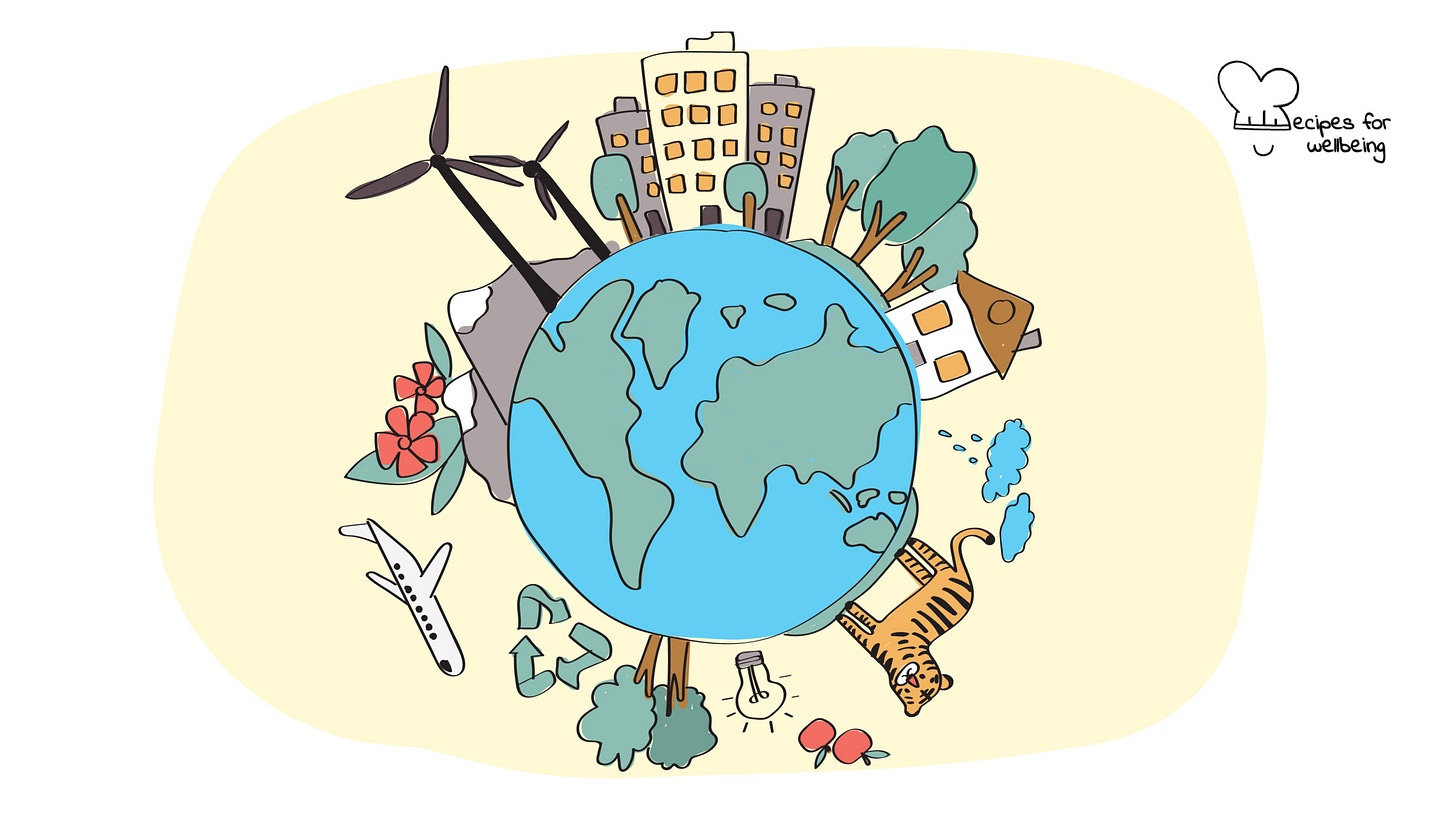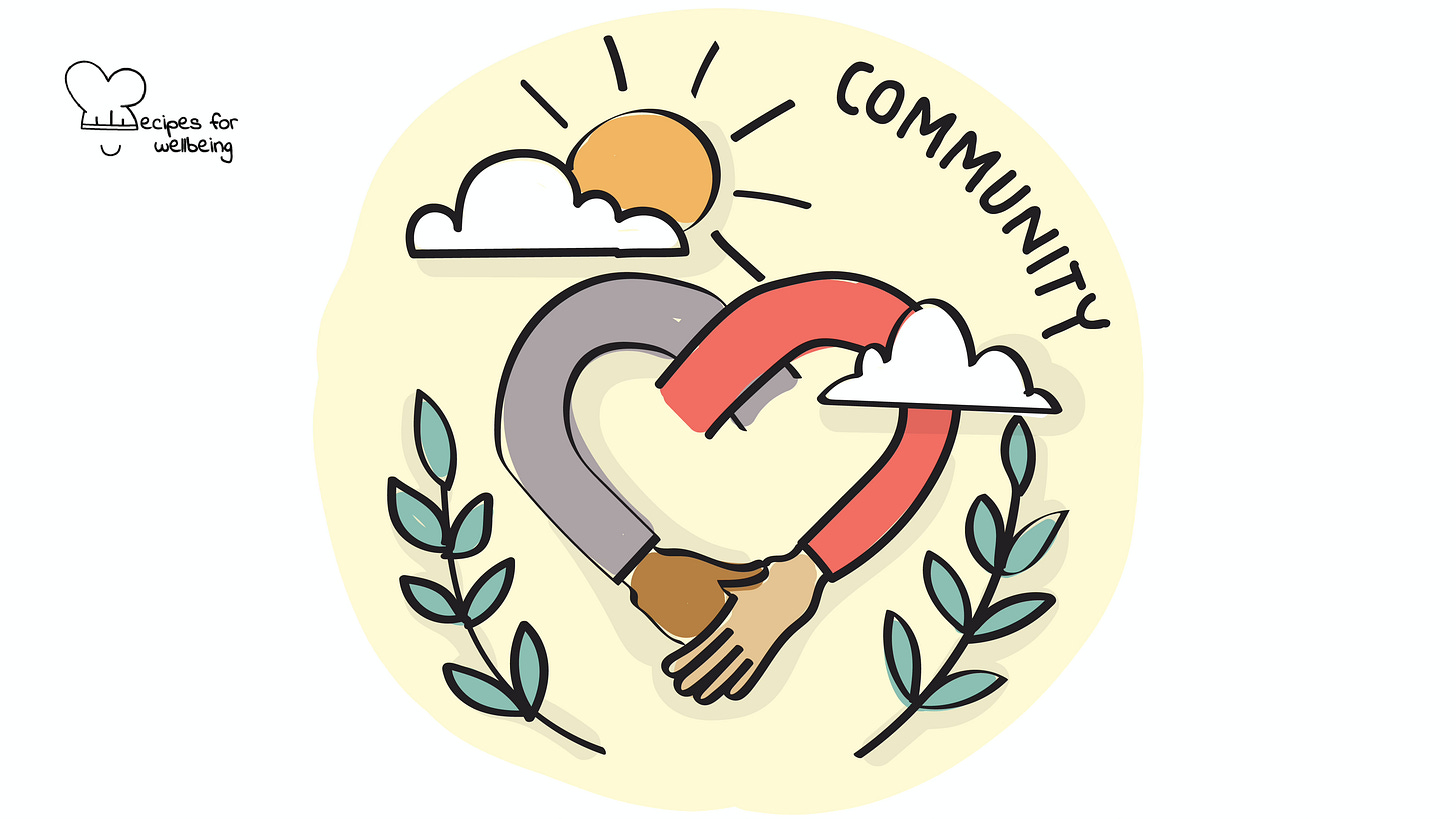
Non-extracting: Avoiding the difficult removal of precious and limited resources.
Rethinking your relationship with planet Earth
In a world where the dominant economic paradigm relies on the relentless exploitation of Earth’s resources, the skill of non-extracting fundamentally reframes your relationship with the planet and all its inhabitants. It is the practice of meeting your needs and pursuing your visions in ways that regenerate rather than deplete, that give back rather than take away.
💡 “Here’s the conundrum: No country has ever ended human deprivation without a growing economy. And no country has ever ended ecological degradation with one.”
–Kate Raworth, Doughnut Economics: Seven Ways to Think Like a 21st-Century Economist
Non-extracting is a cornerstone of the Wellbeing Economy, a model that prioritises the health and happiness of people and the planet over the blind pursuit of economic growth. Practising the skill of non-extracting requires a shift in mindset, behaviour, and economics. It means moving from a scarcity-based mindset to one of sufficiency, recognising there is enough to meet your needs if you share them equitably and live within ecological limits.
What does this mean for changemakers?
For changemakers committed to social and ecological justice, the skill of non-extracting is not a nice-to-have, but a necessity. It asks you to confront the ways in which current systems are built on the extraction of labour, land, and life, disproportionately impacting marginalised communities and ecosystems. It also asks you to recognise that your liberation is bound up with the liberation of all human, non-human, and more-than-human beings. Ultimately, this skill challenges the extractive logic that permeates social and economic relations in favour of principles of reciprocity and care, often found in Indigenous people and frontline communities with long-standing practises of living in harmony with the Earth.
⚠️ IMPORTANT: The skill of non-extracting is not about demonising all forms of resource use but about discerning what is truly necessary and life-generating. It’s about asking critical questions such as: What do you really need to thrive? How can you meet those needs in ways that heal rather than harm? How can you embody a mindset of abundance rather than scarcity?
Developing the skill of non-extracting requires a commitment to ongoing learning, experimentation, and solidarity. It means educating yourself about the true costs of your consumption patterns and production methods. Finally, it’s also about supporting and scaling alternatives like cooperative economies, community land trusts, and forms of regenerative agriculture.
How can you practise the skill of non-extracting?
Here are a few practices to get you started:
Reflection
Take a moment to reflect on the following prompts and share your thoughts and experiences in the comments below.
💭 In what ways might your lifestyle or work be contributing to extractive systems? What would it look like to meet your needs and pursue your visions in non-extractive ways? How might cultivating this skill align with your values and deepen your impact as a changemaker?
⚠️ REMINDER: Non-extracting is a skill for creating a world where all life can thrive. By learning to meet your needs in ways that regenerate rather than deplete, you contribute to healing your communities and planet Earth.
This skill is connected to the Wholebeing Domain of Community

Community is the ability to extend beyond individual self-care towards fostering community care. It involves placing the onus of action on the community versus the individual. This includes skills such as multiperspectivity and equity.
Teaser 👀
The next post will introduce the skill of boundary setting. In the meantime, as you engage with our wholebeing practices, share your commitments, insights, and experiences on your #WholebeingJourney in the comments section below.
In solidarity and reverence for Earth and all its communities,
Alessia, Greta, and Tariq




